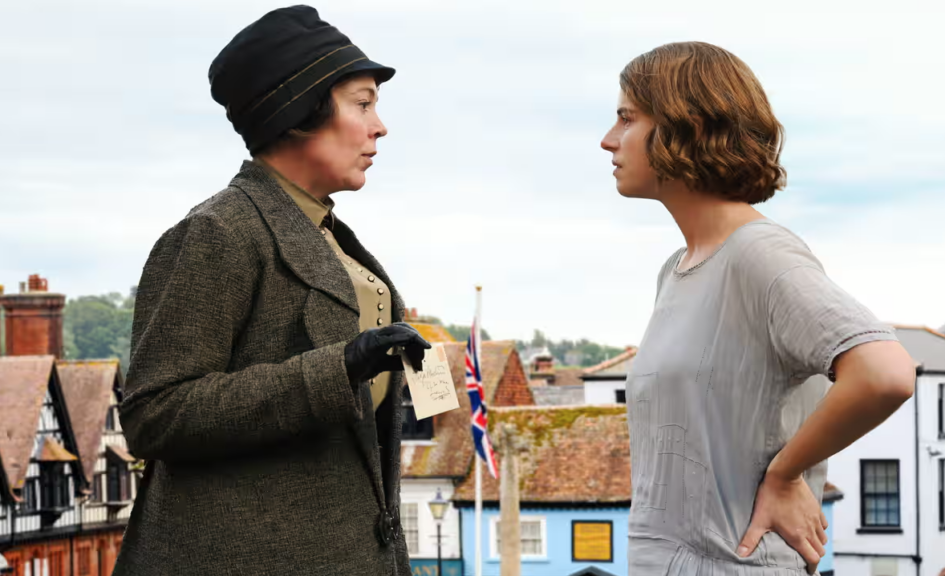Directed by Thea Sharrock | Written by Jonny Sweet | 100 min | ▲▲▲▲△
A capsule version of this review appeared on the blog during TIFF in September 2023.
This picture is a certified crowd pleaser, a whimsical comedic exercise that hides surprising sharp notes. It’s set up as a mystery, but then reveals the whodunnit by the movie’s mid-point. It’s much more a characters study with a more than a few serious thoughts about the freedoms women did not enjoy 100 years ago.
Olivia Colman stars as Edith Swan, god-fearing “spinster” living with her fragile mother and cruel father (Gemma Jones and Timothy Spall, both terrific) in a tiny English hamlet on the seaside in the post-First World War period. Jessie Buckley is Rose Gooding, the Swan’s neighbour, an Irish lady with a boyfriend and a child from her husband who died in the war. Rose likes to have a good time and swears like a sailor.
She and Edith were chummy at first, but then Edith started to receive these offensive letters and, given the language therein — full of offensive, insulting invective — accuses Rose of writing them. Mr Swan insists on bringing in the local constabulary (including a terrific turn from Anjana Vasan as “Woman Police Officer Gladys Moss”) and the press gets on the story, turning it into a national concern.
As mentioned above, it’s not really about the mystery, which gets revealed rather quickly — it’s about Rose, Edith, and Gladys’ circumstances, and why some women’s lies were necessary in that little English town and why some weren’t. The second half of the movie gets to how the truth comes out, with other ladies in town (Eileen Atkins and Joanna Scanlan are especially good) getting involved to reveal the culprit.
Apparently based on a true story, there’s a lot of laughs to be had here, especially if you like to see proper Brits scandalized by foul language. Colman and Buckley are both in excellent form, and the takeaway about women’s empowerment balances the lightness of the humour with some genuine weight.
Sharrock casts largely colourblind, which is terrific, though it does require an extra suspension of disbelief in a period drama like this. That’s because the script trades humour on the politics and sexism of the day — you gotta think many of the whites would’ve been plenty racist, too.












